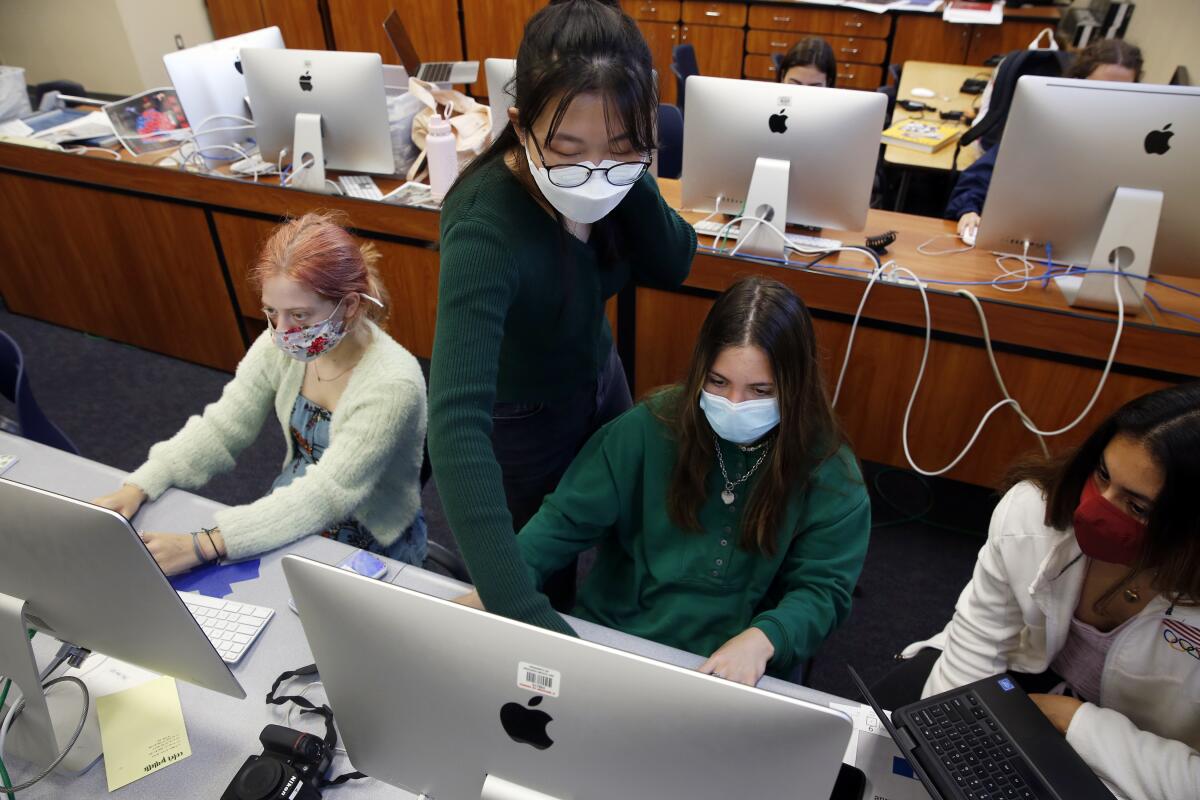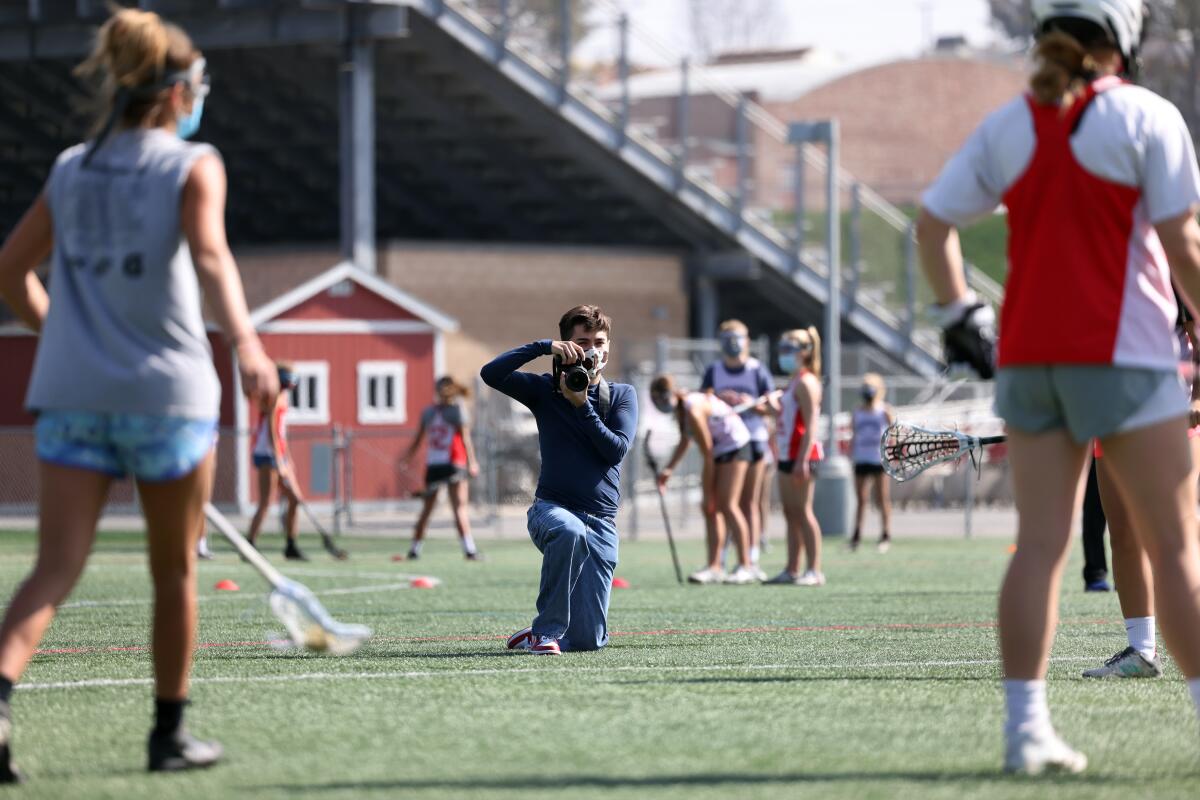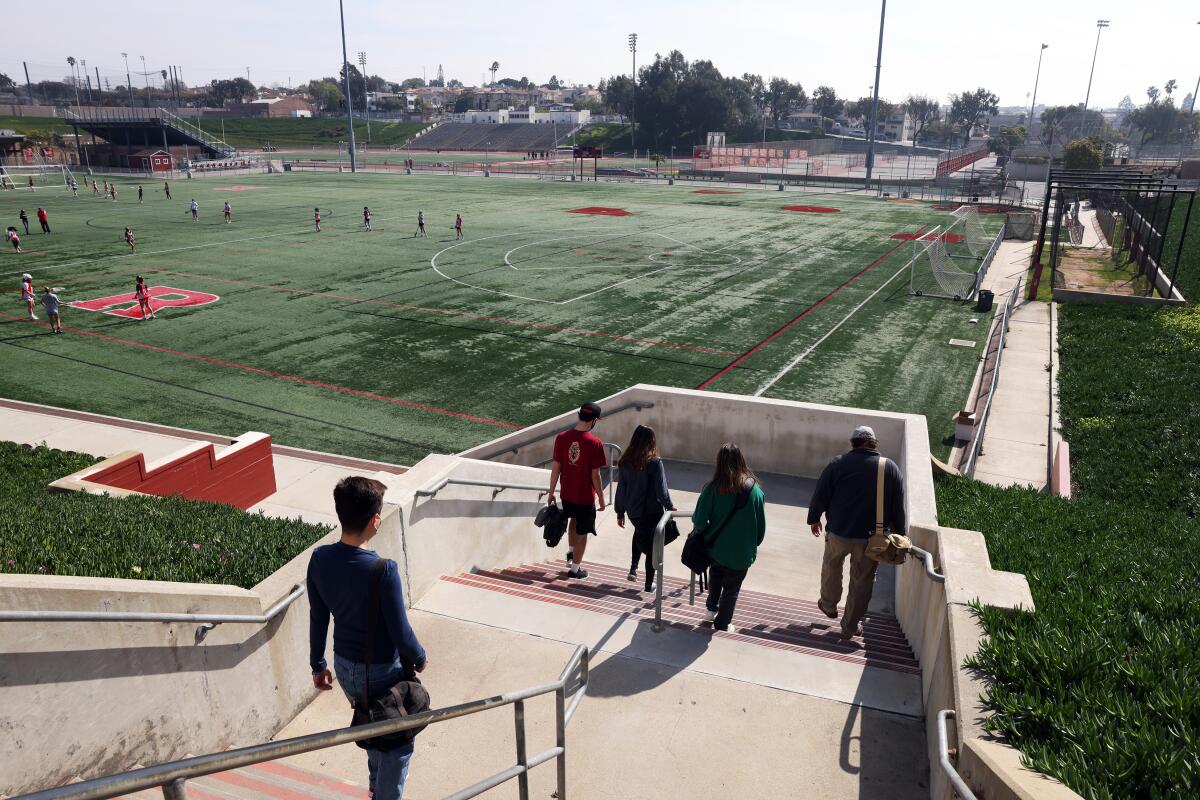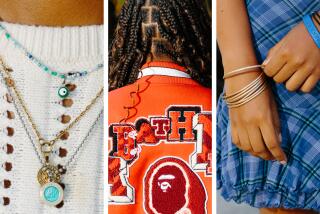High school students want to forget 2020-21. Yearbook editors show them why they shouldn’t

- Share via
The high school editors kept hearing the same murmurings from their classmates. The yearbook would be depressing. It would be thin, if published at all. What was there to look back on, anyway? No prom, no football games, no grad night. Just day after day of Zoom and sweatpants.
At the same time, the seniors lamented how their final year of high school, in all its monotony, was passing them by. They feared that they wouldn’t remember it.
“I tried to reassure them that we are working our hardest to really capture the year for what it is,” said Suji Kim, editor of the Redondo Union High School yearbook, “that it is something we should commemorate and celebrate and not just shove to the back of our minds.”
Such has been the vital responsibility of high school yearbook staffs: to create an accurate yet compelling record of how their peers struggled through — and kept going in spite of — the pandemic. Their daunting mission has been to fill scores of blank pages even though student life as traditionally documented was all but nonexistent.
The mission for Redondo Union High School’s 25 yearbook staffers was compounded by the pressure of representing a nationally recognized yearbook. The bar was high.
Mitch Ziegler, the school’s yearbook advisor of 31 years, kept reminding his staff that most people’s mental images of high school come from the memories preserved in their yearbooks; 2020-21 was no different.
Back in the fall, the editors didn’t know if or when school would re-open. So they turned to crowdsourcing. Students and their parents submitted photos of teens skateboarding and mountain biking, walking dogs, working on cars, baking bread. Like never before, life at home would dominate the yearbook.
Opportunities to take photos of their classmates were slim, so staffers jumped at any chance to do so. When the drama club was rehearsing its fall musical that would make its debut on Zoom, a masked photographer snapped shots from a distance inside an actor’s home.
But that was before the winter surge in COVID-19 cases. At that point, photographers had no choice but to teach their classmates how to take a selfie worthy of a yearbook portrait, directing them over Zoom how to angle their bodies and perfectly capture the light with their phones.
On a bright and cool day in mid-February, when athletes were finally allowed back on campus for conditioning as COVID-19 cases began to wane, a troupe of yearbook photographers descended upon the sports fields. Usually, they don’t even bother taking pictures of practice. But because there hadn’t been any sports games, this was their chance to capture athletes in motion.
For most, it was their first time at school in almost a year.


Marcel Sckesan, a senior, held his lens steady as he snapped shots of girls’ lacrosse players darting back and forth across the field, sticks swooping through the air with each pass.
“Hey, Marcel!” one girl shouted, bounding up to him. “I’m so sweaty. Also, look at these!” she said, flashing pink acrylic nails at Marcel.
“I saw, they’re really cute!” Marcel said, his eyes smiling back at her.
It was nice but jarring, Marcel said. Here he was, interacting with a classmate he hadn’t seen in so long, as if everything were normal. “It’s like no time has passed by because it’s been the same thing over and over again, every day,” he later said.
The editors wanted to acknowledge this sensation of time standing still. Their yearbook would be themed “Because of You,” a reflection on how their relationships to themselves and others helped them find meaning during an otherwise bleak stretch of adolescence.
“We don’t want to have Zoom screenshots for every single spread,” said senior Meena Kabbani, an editor at Redondo Union. “But yearbook is a time capsule of the year and we can’t really ignore the fact that we’re on Zoom 24-7.”
But the staff was determined to get at something deeper than distance learning and new hobbies. This year had been characterized by unending tedium, yes, but also of growth and transformation for many.
There would a spread that spoke to their relationship to the world — how the national racial reckoning in the summer of 2020 moved many Redondo Union students, half of whom are white, to consider their roles in systemic racism and inequality. They marched in Black Lives Matter demonstrations in the South Bay and L.A., while others spoke out on social media about police brutality for the first time.
There would also be a spread on students’ relationship to their more immediate community — friends, parents, teachers, romantic interests — and how those connections grew and morphed.
The most introspective section would look at the relationship to self and how the exploration of identity intrinsic to being a teenager was intensified by so much time alone. Students came out as queer and transgender, shifted their political views and tastes in music, experimented with style. They became more aware of their mental health, the ups and downs and how they coped.
In the yearbook’s introduction, editors wrote of the “unfamiliar silence without the marching band practicing at 7 a.m.” Of how, for once, “there isn’t any traffic backup while students try to get to the science building for fourth period. “
“But because of you,” the text reads, “Redondo is louder than ever.” Students are signing petitions, donating money to community organizations. Their Instagram feeds have become textbooks that they will actually read, the editors quipped.
“We know the pandemic is bringing changes we’ve never experienced before,” the editors wrote. “But the most important changes that will make this year special are the ones brought by you.”
Getting people to open up on this level, though, often took a lot of convincing — a challenge faced by many other yearbook teams across California. So editors have had to be abundantly patient and empathetic with both their classmates and fellow yearbook staffers, who have themselves missed deadlines and skipped class.
“People just don’t have as much of an incentive to be in the yearbook right now,” said Ethan Bolos, a senior and yearbook business manager at John A. Rowland High School in the San Gabriel Valley. “I’ve been left on read and ghosted so many times.”
This year has also stretched their networking skills; in normal times, they could just stop a classmate in the hallway and ask them for an interview.
Jennifer Tan, yearbook advisor for Rowland High School, watched her staffers form elaborate contact trees on Google Docs in order to reach students who’ve not yet been included in a yearbook spread.
“It’s a lot of ‘I know a person who knows this person, I’m in a club with so-and-so,’ and tracking people down through social media,” Tan said.
Most seniors, motivated by their final chance to make their mark in the yearbook, had their studio head shots taken by the February deadline. But only half of the freshmen, sophomores and juniors — who had to take their own — turned theirs in.
“Kids tend to be upset if they’re left out [of the book] by a mistake, so it’s eerie,” said Ziegler, the Redondo advisor. “They just felt completely disassociated from school this year.”
In early April, the yearbook staff was finally back together in Room 164; three-fourths of Redondo Union’s student body had returned to campus, a much higher number than most California high schools. The editors peeked over the shoulders of staffers as they worked on their 24-inch Apple monitors, a relief after communicating through Zoom breakout rooms and designing spreads on tiny Chromebooks for many months.
Photographers now had the herculean task of covering the equivalent of three sports seasons in the span of eight weeks. Some sports were still hard to shoot — the boys’ basketball team was quarantined after a COVID-19 outbreak. The track team’s meets were few and far between.
Against all odds, the editors are on track to make their June 1 deadline, one month shy of when they’d normally ship the pages off to their publisher. About 1,500 students had pre-ordered a yearbook, 500 fewer than usual. The book would be delivered to students in July.
For editor Suji Kim, who will attend the University of Pennsylvania in the fall, it is a triumph.
“I might not have had a prom or senior ditch day,” she said, “but at least I have this yearbook.”
More to Read
Sign up for Essential California
The most important California stories and recommendations in your inbox every morning.
You may occasionally receive promotional content from the Los Angeles Times.











